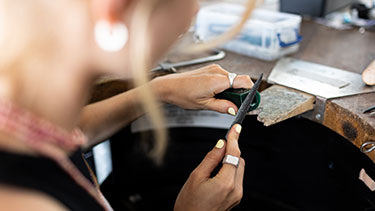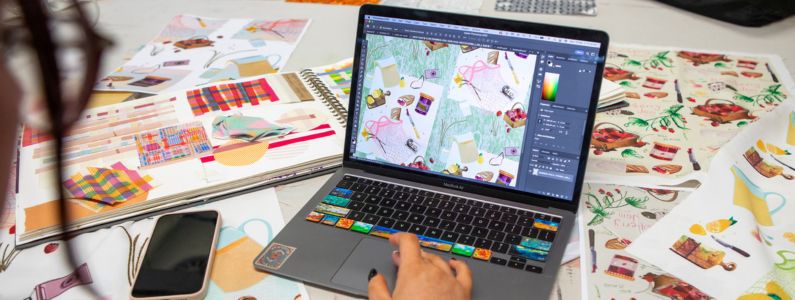Interactive Learning Skills and Communication*
Throughout this module, you will learn the academic skills needed for success at a UK university, such as:
- Time management
- Public speaking techniques
- Appropriate language styles
- Professional communication and presentation
- Researching and referencing techniques.
Creative Workshop*
During this module, you will develop and demonstrate imaginative and flexible approaches to different art and design techniques. You will develop your ideas within the creative studio environment.
Critical Thinking*
You will be introduced to the fundamentals of critical thinking. You will learn how to examine and comment on components of an argument, so that you can develop a structured and analytical response.
Extended Media Experimentation
You will explore your own ideas while experimenting with processes and techniques and discovering the characteristics and properties of selected media.
Information Researching, Recording and Responding in Art & Design
During this module, you will learn how to undertake in-depth research while exploring many ways to record your findings. You will also learn how to respond to problems, enabling you to develop your skills, self-confidence and studio practice.
Interactive Learning Skills and Communication & Preparation and Progression in Art and Design
This module will cover topics including:
- Understanding cultural and gender differences
- Methods for planning, preparing and producing a major art and design project
- Preparing for exhibition.
Knowledge & Understanding of Creative Practice in Art & Design
You will develop an understanding of contemporary, cultural, social and historical contexts in art and design. This will help you develop your creative practice and make informed decisions about your pathway choices.
Mass Communication*
This module will introduce you to the core concepts and principles relevant to mass communications, including some of the major theories.
Media Experimentation in Art and Design
You will have the opportunity to explore a wide range of media – experimenting with both traditional and contemporary processes and techniques. You will gain an understanding of the potential and limitations of media, using critical review and reflection in the planning and development of your own ideas.
Personal Combined Experimental Studies in Art & Design
This module will cover topics including:
- Reviewing and reflecting on your own work
- Challenging previous thoughts, ideas and beliefs
- Health and safety requirements
- Record-keeping.
* Additional four modules in the three-semester programme


